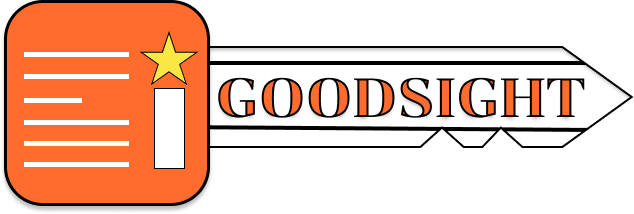How To Save a Fumble
Over the years, quite a few very smart and hardworking individuals have asked me how to get their confidence back on track, and regain their flow, after they make a mistake in an important interview, talk, or any other kind of presentation.
It's a good question. Asking it gave me one more reason to respect them.
Nonetheless, many of them told me my answer seemed "counter-intuitive" ...
At first.
Later, they came back and said it was the best advice they could have gotten.
So, I figure I should share it, and here it is:
What to do when the spotlight shines on your imperfect humanity?
Turn It Up!

As strange as it may seem
— that is where your magic power is hidden.
You might be surprised at how powerful admitting a mistake, or otherwise admitting your humanity, can make your presentation.
In fact, something like the "Pratfall Method":
Intentionally making a little slip or two just to create a human connection, or to increase the person-to-person engagement, with your audience.
Is way better than this method:
Trying to bury your mistake in "powering on" and hoping nobody noticed.
The second method will give you more stress and leave you questioning the effectiveness of your presentation. It will actually deepen the black hole of your imperfect confidence.
You'll be trapped constantly trying to fill that black hole of fear as it just keeps getting getting bigger ... Because what it really means is you are begging for a sign from your audience that you're OK.
And that is totally opposite to the approach you need for success.
Remember that you are there to help your audience:
You are the doctor, not the patient.
The presentation isn't about you either, the presenter. Rather, your personality, skills, talent, etc., all of what you are and have, will be engaged in something bigger than you.
That is: the transfer, or channel if you like, of important information to your audience (your presentation topic) ... In other words, you are not the message. You are the medium for the message.
Sure, we all have emotions. It's always an exciting and nervous moment before you speak in front of people, or even before you speak to just one very important person.
That's a natural human response because, no matter how independent and free-spirited you are, a sense of belonging and a genuine recognition of your abilities is something all humans need.
These two human needs come right after your basic survival and safety are taken care of.

So, in order to reach other human beings, you need a solid anchor for your presentation that isn't just about your own feelings.
You need something that is stronger than a pdf on how to pep yourself up or convince yourself that you "can do it".
You need a starting point that goes deeper and gives direction to all the presentation skills courses you see offered on the net, about how to develop the most irresistible voice, eyes, attention-grabbing intro, and so on ...
It's like this: After 25 years of giving presentations, including my own experience as a business owner and manager, and teaching presentation skills to 1000s of entrepreneurs and professionals, I've found that there is only one reliable method to make yourself the confident presenter you need yourself to be.
The only approach to presenting with confidence consistently, so you can turn those wild feelings into positive energy, begins with understanding very clearly how your presentation answers the needs of your audience.
You need to show that you understand the outcome they want and tell them how to get to the outcome they want.
Furthermore, you need to sincerely believe in this process. When you believe in it, your audience can believe in it.
Certainly, you can learn a few tricks and fool some of the people some of the time. But you can't fool all of the people all of the time, as the saying goes, and you can't even fool some of the people for very long.
The insecurity of a career based on fooling people for as long as you can does not contribute to your mental health. As you saw above in Maslow's Hierarchy of Human Needs, the stability of your resources (i.e., your safety and security) is even more urgent than being a respectable member of society.
This is why I highly recommend beginning your career or business, especially in sales and marketing but also in any other kind high-contact high-communication area, with an approach that is authentic and respectful of your humanity and everyone else's -- an approach which, in fact, serves humanity.
Now, that's a plan to guide us in all areas of life.
But it's going to require us to understand a few things as well as we can:
1. Understand what it is you're offering. Is it information, a recommendation, a product/service, or training? Or is it something more personal like companionship, parenthood, providing a home, mentoring, and love?
2. Understand who it's for and learn as much about them and their specific needs as possible.
3. Understand exactly how what you offer satisfies their needs.
4. And of course, understand how you can develop your communication skills in presentation, speaking and teaching ... Learn and practice all you can.
Skills such as speaking at the right pace, enunciating, using your eyes, your hands ... I teach all that in my ever-popular Power Speaking course. (You can get the recorded version here.)
But DON'T start clicking and ordering that now. I do not want you to order it until you know the truth, the whole truth, and nothing but the truth.
The truth:
Knowing and believing in this is, in the long run, the only reliable way to remember how to let your worry go and allow your message to use you ...
As a human instrument, with all our funny imperfections included, to serve those whom we can serve, with our talent, our skills, our experience, and everything else we got.
You're not doing this to save yourself and your feelings, but to transfer something bigger than you to your audience — the message you believe in, that will help your audience and satisfy their need and solve their problem.
This is how to turn your weakness into strength, which can handle every mistake comfortably and confidently, so you can laugh at yourself under pressure ...
And which results in a converted audience.
That's my experience and I hope it helps you.
One last note:
